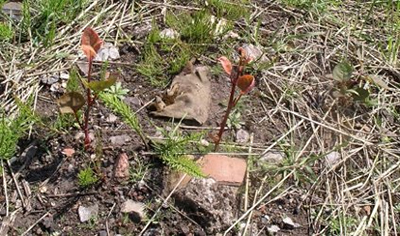Time and date
CONSTRUCTION DIRECTORY
The Knotweed Company
Identification of Japanese Knotweed
Identification is normally a straightforward issue. Fallopia japonica (Japanese knotweed) is common throughout the British Isles. While it often grows in damp conditions, it may also be found on dry, droughty soils, in coastal marshland, railway ballast, derelict land and domestic gardens. We have found Japanese knotweed growing in all situations all over the country. It is probably true to say that if you are currently reading this in the British Isles, there will be some knotweed within one mile of where you are now – possibly nearer.



- Winter: Knotweed is an herbaceous perennial. Each winter, frosts kill off the above-ground growth, leaving a dense area of dead stems. The stems are hollow, smooth and break easily. At the base of the stems there may also be crowns, from which many stems grow.
- Spring: The knotweed will form brown buds at ground level, and then young red shoots start growing, typically in April or early May. These shoots may resemble asparagus and are approximately 2-3 cm thick. Extremely rapid growth is the norm for Japanese knotweed and in the spring, with favourable temperatures, growth of 300 mm per week is common in established plants. Stems are hollow and alternately 'zig and zag' at each leaf node.
- Summer and Autumn: From July to October the plant is normally at full height – between 2-3m, depending upon local factors. In August and September, attractive, creamy white flowers are borne.

The Knotweed Company
Unit 3 Royal Oak Court
Royal Oak Way North
Daventry
NN11 8PQ
Royal Oak Way North
Daventry
NN11 8PQ
















